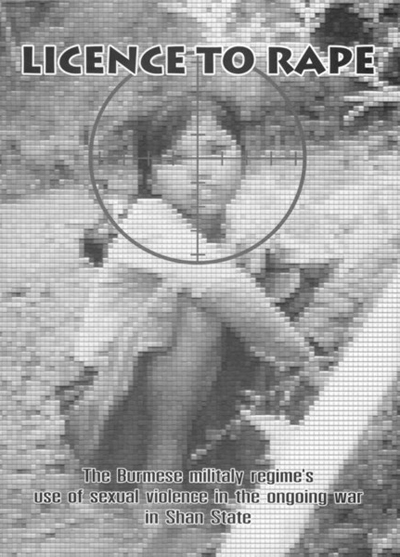Sai Seng Wan, Shan academic working with the Restoration Council of Shan State / Shan State Army (RCSS/SSA), presenting his paper at the 4th International Conference on Human Rights and Development at Bangkok’s prestigious Chulalongkorn University today, says without going back to the Panglong Agreement, the pre-independence alliance pact between Burma and the Frontier Areas, the human rights issue in Burma, particularly in Shan State, will never be resolved.
 “Human Rights in Shan State are inseparable from the Panglong Agreement”, he said. “Not daring to invoke the Panglong Agreement in solving the union’s problems is similar to walking with a piece of cloth fastened over one’s eyes.”
“Human Rights in Shan State are inseparable from the Panglong Agreement”, he said. “Not daring to invoke the Panglong Agreement in solving the union’s problems is similar to walking with a piece of cloth fastened over one’s eyes.”
Panglong, signed on 12 February 1947 by Gen Aung San on Burma’s side and Sao Hkun Pan Sing, Sinwa Naw, U Hlur Hmung and others for Federated Shan States, Kachin Hills and Chin Hills respectively, had promised “Full autonomy in internal administration” and “rights and privileges which are regarded as fundamental in democratic countries.”
Soon after Independence, the Kuomintang forces led by Chiang Kai-shek, defeated by Mao Zedong’s Communist forces, retreated to Shan State. On the pretext of fighting against the KMT, the Burma Army then occupied Shan State, setting up military bases in “areas such as Yawnghwe, Kalaw, Taunggyi, Mongpawn, Loilem, Laikha and Mongkeung where there were no signs of the KMT.”
Human rights violations committed by the Burma Army even before the union was 10 years old included extrajudicial killings, beatings, tortures, rapes (including a Buddhist nun who was killed afterwards), arbitrary detention, forced labor, forced portering, forced requisition of vehicles, forced relocations and enslavement “amounting to committing ethnic cleansing.”
On the Shan side, its leaders had made efforts to deal with the issue politically notably by hosting the Inter States Seminar in 1961 to amend the 1947 constitution and by the Shan Nationalities League for Democracy (SNLD) led by Hkun Tun Oo that won the most seats in Shan State in the 1990 elections. Most of them including Khun Tun Oo ended in imprisonment.
Seng Wan suggests a 5-point proposition, based on Panglong, for the ending of Burma’s woes:
- Withdrawal of the Burma Army (which is not a Union Army but a Burmese/Burman Army) from Shan State and other ethnic areas
- For Burma Proper to have its own separate state
- To set up a central government with an equal number of representatives from each state
- To draft a new constitution that ensures equal rights for each state
- To set up a union armed forces managed jointly by every member state
Many Burmese/Burman leaders are afraid of Panglong due to the inclusion of the invisible clause: Right of Secession. “They shouldn’t,” said Seng Wan, “because Shan State has technically become separate since the 1947 constitution, born out of Panglong, was declared null and void in 1962.”
Groups fighting for democracy also need not fear Panglong either. “The path of Shan State independence and the path of the democratic forces are interdependent and supportive of each other,” he said. “We are fighting against a common enemy. When our respective goal is reached, we can form a new union like the European Union.”
Seng Wan’s presentation will be between 17:00-18:00 today. Shan Women’s Action Network (SWAN) that achieved fame with License To Rape: The Burmese military regime’s use of sexual violence in the ongoing war in Shan State will also be participating in the forum, represented by Nang Zarm Hawm.



